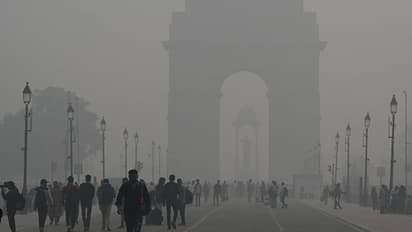Delhi pollution update: GRAP-III curbs in Delhi from today; Here's what is banned
Published : Nov 15, 2024, 09:03 AM IST
Delhi's air quality reached 'severe' levels, prompting the implementation of GRAP Stage 3. The stricter restrictions aim to combat rising pollution levels caused by calm winds and cooler temperatures.
Stay updated with the Breaking News Today and Latest News from across India and around the world. Get real-time updates, in-depth analysis, and comprehensive coverage of India News, World News, Indian Defence News, Kerala News, and Karnataka News. From politics to current affairs, follow every major story as it unfolds. Get real-time updates from IMD on major cities weather forecasts, including Rain alerts, Cyclone warnings, and temperature trends. Download the Asianet News Official App from the Android Play Store and iPhone App Store for accurate and timely news updates anytime, anywhere.
Read more Photos on
